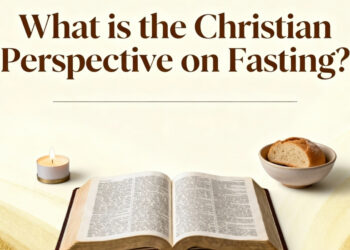No products in the cart.
How do Christians view the concept of religious freedom?
This post contains paid and/or affiliate links. I make a small commission at no extra cost to you. Please see our Privacy Policy.
Religious freedom holds a complex place within the Christian tradition. As Christians, we value individual religious freedom and the separation of church and state. However, we also grapple with the idea of religious uniformity for the sake of the common good.
Our ambivalence towards religious freedom stems from our sacred scriptures, particularly the Old Testament. Throughout history, this tension between individual freedom and religious uniformity has led us to develop various perspectives and interpretations of religious freedom.
This article will explore the Christian theology of religious freedom and examine the American understanding of this fundamental right. By doing so, we hope to shed light on how Christians view and navigate the concept of religious freedom in our modern society.
The Christian Theology of Religious Freedom
The Christian theology of religious freedom is deeply rooted in the core beliefs and teachings of Christianity. Central to this theology is the belief that every person has the freedom and responsibility to choose their religious convictions. Christians view religious freedom as a fundamental human right, recognizing that each individual is created in the image and likeness of God.
According to Christian theology, true faith cannot be coerced or compelled. Individuals must freely choose it in response to God’s call and invitation. This belief in the inherent freedom of faith is supported by the early church fathers, such as Tertullian and Lactantius, who argued for religious freedom as a natural right and a matter of justice.
While the Christian theology of religious freedom promotes the idea of individual choice and accountability to God, it is essential to acknowledge that throughout history, there have been instances of Christian intolerance and coercion. These regrettable actions should not be overlooked or dismissed when discussing the Christian theology of religious freedom. It is essential to strive for a comprehensive understanding of Christian perspectives on religious freedom, acknowledging both the positive ideals and the historical challenges.
The American Understanding of Religious Freedom
Christian ideas and principles deeply influence the American understanding of religious freedom. From the very beginning, the founders of the United States recognized the value that religion holds for individuals and society as a whole. They believed religious freedom was a fundamental right and enshrined its constitutional protection.
For the founders, the importance of the religious conscience was paramount. They understood that each person has a unique relationship with their faith and that it is through their religious convictions that they discern their duty to God. This belief in the sacredness of individual conscience significantly shaped the American understanding of religious freedom.
Another significant influence on the American understanding of religious freedom is the recognition of the limitations of human power. The founders drew from the Christian concept of man’s sinfulness, understanding that concentrated power can lead to abuses. Therefore, they sought to prevent the concentration of power by establishing a system of government that respects religious freedom.
The American understanding of religious freedom also recognizes the contribution of religion to the common good. The founders acknowledged that religion plays a vital role in shaping moral arguments and guiding the actions of individuals. They believed allowing free and peaceful contention of these moral arguments strengthens society.
FAQ
How do Christians view the concept of religious freedom?
Christians value individual religious freedom and the separation of church and state. However, they have also grappled with the idea of religious uniformity for the sake of the common good.
What is the Christian theology of religious freedom?
The Christian theology of religious freedom is rooted in the belief that every person is accountable to God and has the right to choose their religious convictions. True faith cannot be coerced or compelled but must be freely chosen.
What is the American understanding of religious freedom?
Christian ideas and principles deeply influence the American understanding of religious freedom. The founders of the United States recognized the value of religion for individuals and society and enshrined the protection of religious freedom in the Constitution.













